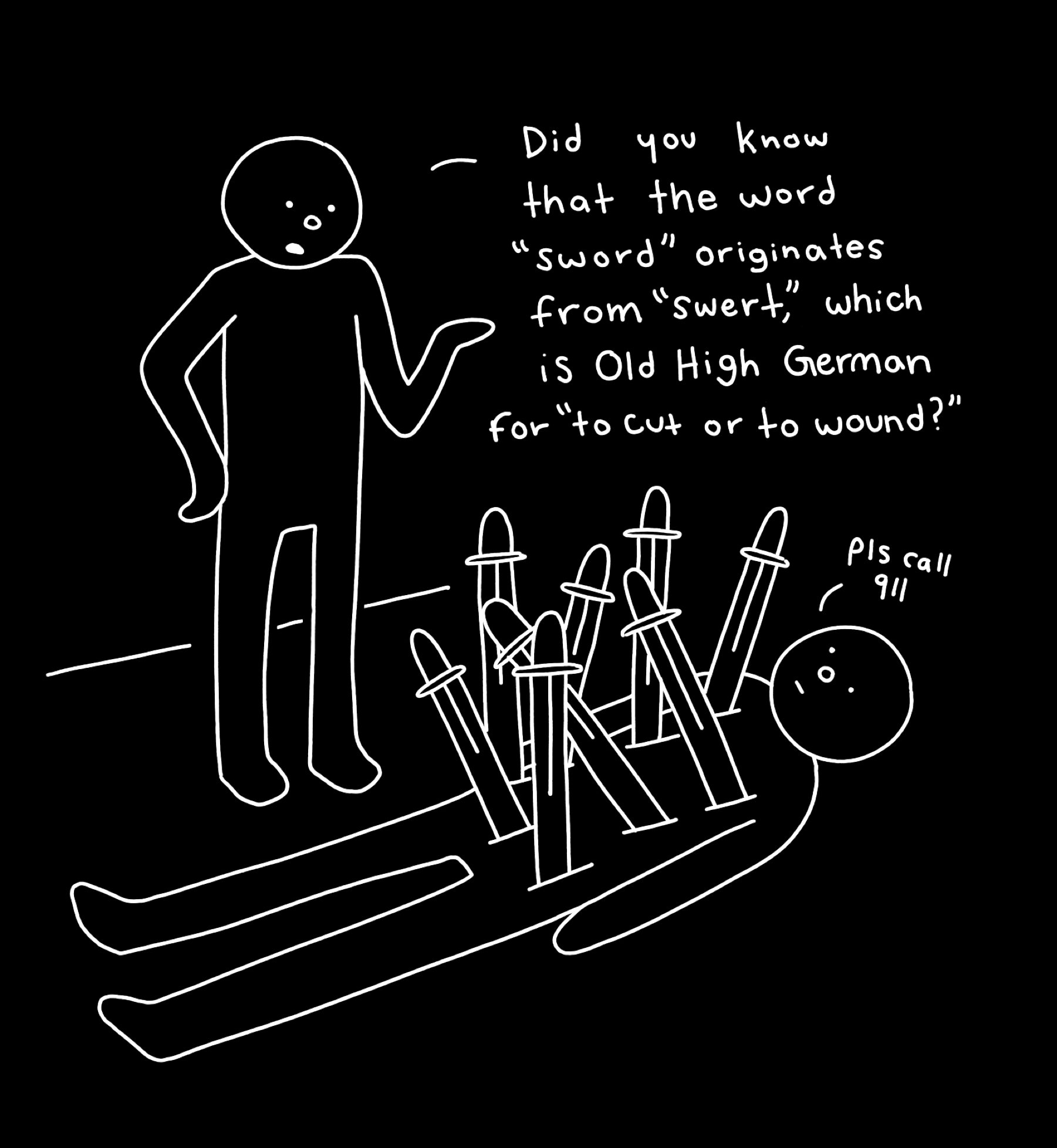Comic depiction of mansplaining. Anna Hart // AS Publicity Center
By MacKenzie Dexter
As womxn, we experience male-identifying peers, co-workers and even family explain, interrupt and condescend us. Whether or not they intentionally mean to do it, they do what is known as mansplaining and manterrupting.
According to the dictionary by Merriam-Webster, to mansplain is “to explain something to a woman in a condescending way that assumes she has no knowledge about the topic.”
Manterrupting is when a man interrupts a woman.
I wanted to hear other people’s experience with mansplaining and hopefully help others to be more conscious of when they are doing it. So, I asked Western students: have you been mansplained, manterrupted or talked down to?
I was nervous reaching out to sources for this story. I was afraid others weren’t experiencing it or that I was being overdramatic and needed to drop it. However, I found many people who have had similar experiences, or worse.
Bethany Meyer, a Western fourth-year, said that she passed out Women in STEM [science, technology, engineering and math] fliers during class when a peer came up to her afterwards and explained that woman can’t do math, so they aren’t as good as men at science.
“He ended up saying his reasoning is because his wife and daughter are both ‘bad at math,’” Meyer said.
Chloe Fleuret, a Western fourth-year, said that a couple quarters back she had the highest score on a chemistry exam. She was in the lab that same day and a person in her class kept telling her she was doing the procedure incorrectly.
“He proceeded to be like: well, trust me, I know what I’m doing, let me help you guys, you look like you need it,” Fleuret said.
According to Fleuret, her lab partner brought up that Fleuret received the highest score on the exam.
“He pretty much was offended the entire rest of the quarter and was constantly trying to prove me wrong,” Fleuret said.
Some students are afraid to share their stories and prefer to remain silent or anonymous. For example, one student interviewed asked to remain anonymous since she currently works with the man involved.
This student explained that an event took place that covered a sensitive topic in the news. Students gathered to talk and support those affected. According to the source, a man ended up taking over the planning and diverted from the original message of the event. He then took credit for the event and overlooked the womxn in the group.
The story the student shared with me met the definition of mansplaining, I sympathized with her when she asked to remain anonymous due to potential repercussions. While it may be hard to see why womxn feel the need to stay under the radar for issues like this, it is understandable.
“His intentions may have been good, but they led to me feeling unsafe at an event that I tried to create,” the student said. “I felt angry and I’m sure the other student activists, who wanted to create a safe space, were angry too.”
Within my own work, I have also experienced mansplaining. Even though I have qualifications and credentials in my field, I feel the need to prove my knowledge. Overexplaining and condescending tendencies become draining and take away from focusing on a job.
Mansplaining becomes something that is difficult to brush off or ignore when my own ideas are questioned, explained or stolen by men.
Even with trainings, such as Associated Students quarterly trainings where mansplaining in the workplace is discussed or in conversation with a peer studying the same major at the same university, mansplaining still continues. Womxn should not have to feel the need to remain anonymous in order to share their stories, nor should they have to continuously prove their intelligence to men in the same major. While one article isn’t going to change the course of systematic toxic masculinity, we need to become conscious of how we are speaking and interacting with our equals.

